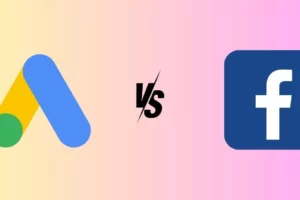When Google launched in 1998, it promised to organize the world’s information and make it universally accessible and useful. Over the years, the tech giant has grown into a behemoth, dominating search, advertising, and countless other industries. Yet, beneath its shiny exterior lies a darker reality—one marked by censorship, bias, and ethical concerns that have sparked controversy and debate. While Google remains a cornerstone of modern life, its actions and decisions have raised questions about its role in shaping public discourse and its responsibilities as a global leader. Let’s explore the darker side of Google and the implications of its practices.
Censorship: Balancing Freedom and Control
One of the most contentious issues surrounding Google is censorship. As a search engine with unparalleled reach, Google wields immense power to shape what users see and don’t see online. This influence has led to accusations of censorship, particularly in politically sensitive regions and during moments of geopolitical tension.
China and the Great Firewall
Perhaps the most infamous example of Google’s involvement in censorship is its operation in China. In 2006, Google agreed to comply with China’s strict internet regulations, censoring search results deemed inappropriate by the Chinese government. This decision sparked outrage among free speech advocates, who argued that Google was complicit in restricting access to information. While Google later withdrew its services from mainland China in 2010, citing concerns over censorship, the episode highlighted the company’s willingness to compromise its principles for market access.
Country-Specific Restrictions
Beyond China, Google has faced pressure to censor content in other countries. For instance, in Germany, Google removed Holocaust-denial websites from its search results to comply with local laws. Similarly, in India, Google removed content flagged as defamatory or illegal by the government. These actions reflect the delicate balancing act Google must perform between respecting national laws and maintaining its commitment to free expression.
Algorithmic Censorship
Even when Google doesn’t explicitly remove content, its algorithms can inadvertently censor certain viewpoints. Search results are often skewed toward mainstream narratives, marginalizing fringe opinions or controversial topics. This phenomenon, known as algorithmic bias, has been criticized for reinforcing existing power structures and suppressing dissenting voices.
Bias: Amplifying Inequality
Bias in Google’s products and services has been another source of concern. Whether intentional or inadvertent, bias can manifest in search results, recommendations, and even AI-driven decisions, perpetuating inequality and discrimination.
Search Results: Echo Chambers and Confirmation Bias
Google’s search algorithms are designed to deliver personalized results based on user behavior. While this personalization enhances relevance, it can also create echo chambers, where users are exposed only to information that aligns with their existing beliefs. This phenomenon exacerbates confirmation bias, limiting exposure to diverse perspectives and reinforcing societal divisions.
Recommendations: Reinforcing Stereotypes
Google’s recommendation systems, which power everything from YouTube videos to shopping suggestions, have faced criticism for amplifying harmful stereotypes. For example, searches for certain racial or gender-related terms have been shown to return biased results, reinforcing negative stereotypes or excluding underrepresented groups. These biases can have real-world consequences, influencing hiring decisions, social interactions, and public policy.
AI and Machine Learning: Amplifying Errors
Machine learning models trained on biased datasets can perpetuate systemic inequalities. For instance, facial recognition systems have been shown to misidentify people of color at disproportionately high rates, leading to wrongful arrests and other injustices. Google’s own AI projects have faced scrutiny for perpetuating similar biases, prompting calls for greater transparency and accountability.
Ethical Concerns: Privacy, Surveillance, and Profit
Google’s business model relies heavily on collecting vast amounts of user data, raising ethical concerns about privacy and surveillance. While the company has implemented measures to address these issues, critics argue that its practices still fall short of protecting user rights.
Data Collection: The Price of Free Services
Google offers a range of free services, from search and email to maps and cloud storage. In exchange, users unwittingly provide a treasure trove of personal data, including search histories, location data, and browsing habits. This data is then used to target ads, creating a lucrative business model that prioritizes profit over privacy.
Surveillance: A Double-Edged Sword
Google’s ability to track users across devices and platforms has raised concerns about surveillance. While some argue that this tracking improves user experience, others see it as an invasion of privacy. The lack of transparency in how data is collected, stored, and shared further compounds these fears, leaving users uncertain about the extent of Google’s reach.
Ethical AI: Navigating Complex Terrain
As Google expands its use of artificial intelligence, ethical dilemmas abound. For example, should AI be used to screen job applicants, predict criminal behavior, or assist in medical diagnoses? Each application raises questions about fairness, accountability, and unintended consequences. Google has established guidelines for ethical AI, but enforcing these principles in practice remains challenging.
The Broader Impact: Shaping Society
Google’s influence extends far beyond its products and services. As a dominant player in the tech industry, Google wields significant power in shaping societal norms and values. This influence is both intentional and incidental, affecting everything from education to politics.
Education and Information Literacy
Google’s dominance in search has made it the default source of information for millions of students and educators. While this democratizes access to knowledge, it also raises concerns about information literacy. Students may rely too heavily on Google’s search results without critically evaluating the credibility of sources, leading to misinformation and flawed reasoning.
Political Influence: Shaping Public Opinion
Google’s ability to curate and promote content has made it a powerful player in political discourse. Search results, trending topics, and recommended videos can sway public opinion, either intentionally or inadvertently. This influence has been exploited by bad actors seeking to manipulate elections or spread propaganda, further complicating Google’s role in democratic processes.
The Future: Accountability and Reform
Addressing the dark side of Google requires collective action and systemic reform. While Google has taken steps to improve transparency and accountability, more needs to be done to restore trust and ensure that its practices align with ethical standards.
Strengthening Privacy Protections
Regulators and lawmakers must enact stricter data protection laws, mandating greater transparency and user control over personal data. Companies like Google should be held accountable for breaches and misuse of data, with penalties proportional to the harm caused.
Promoting Algorithmic Fairness
Developers must prioritize fairness in algorithm design, regularly auditing models for bias and correcting discrepancies. Open-source initiatives and collaborative efforts can help standardize best practices and ensure that AI benefits all segments of society.
Fostering Ethical Leadership
Google’s leadership must embrace ethical stewardship, prioritizing long-term societal impact over short-term profits. This includes fostering a culture of transparency, encouraging open dialogue with stakeholders, and actively addressing ethical concerns.
Google’s dark side—censorship, bias, and ethical concerns—poses significant challenges to its reputation as a benevolent force in technology. While the company has made strides in addressing these issues, much work remains to be done. As we navigate the complexities of the digital age, it’s imperative that we hold tech giants accountable for their actions and advocate for policies that protect individual freedoms and promote equitable outcomes.
Google’s journey serves as a cautionary tale about the perils of unchecked power and the importance of ethical foresight. By learning from its mistakes and embracing transparency, Google can restore trust and continue to fulfill its mission of organizing the world’s information responsibly. However, achieving this vision requires not just Google’s efforts but the collective will of governments, civil society, and users worldwide.















Add Comment